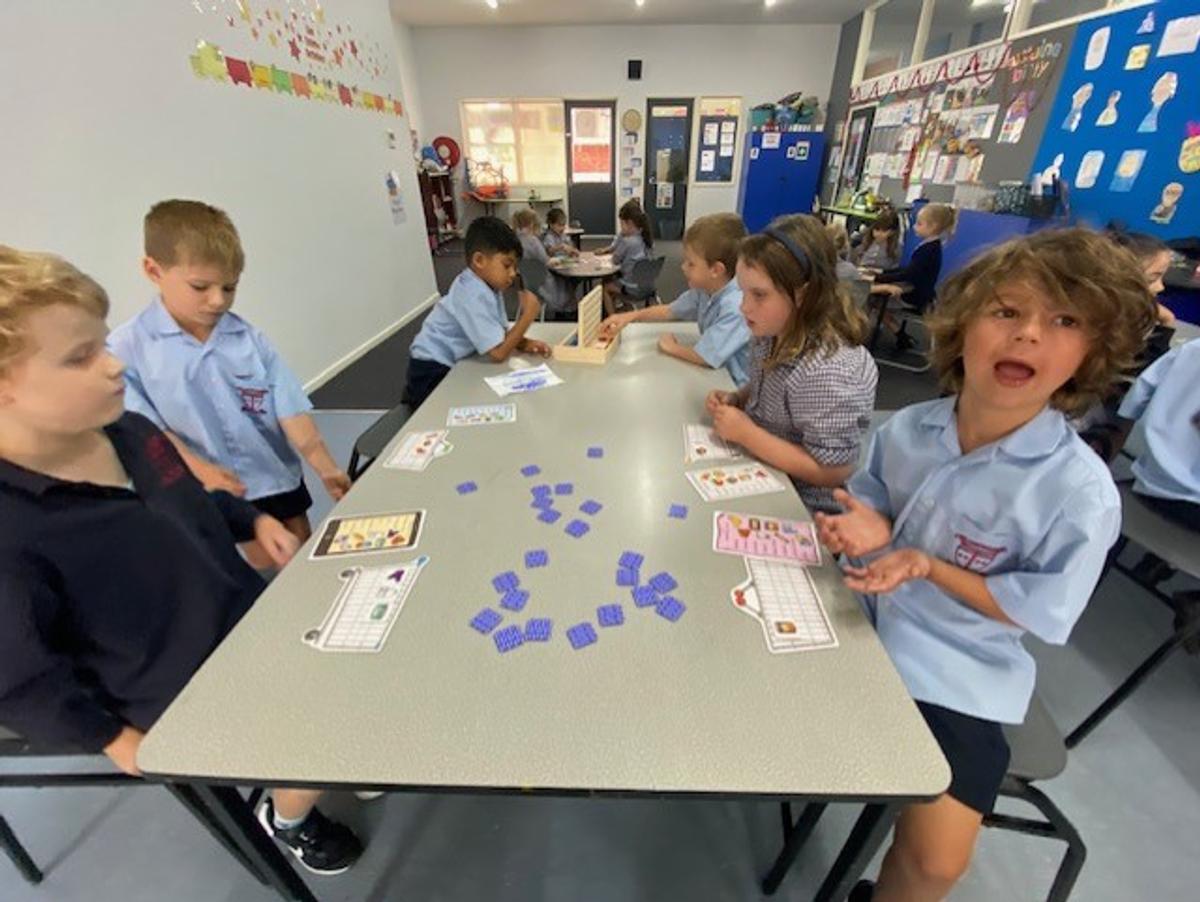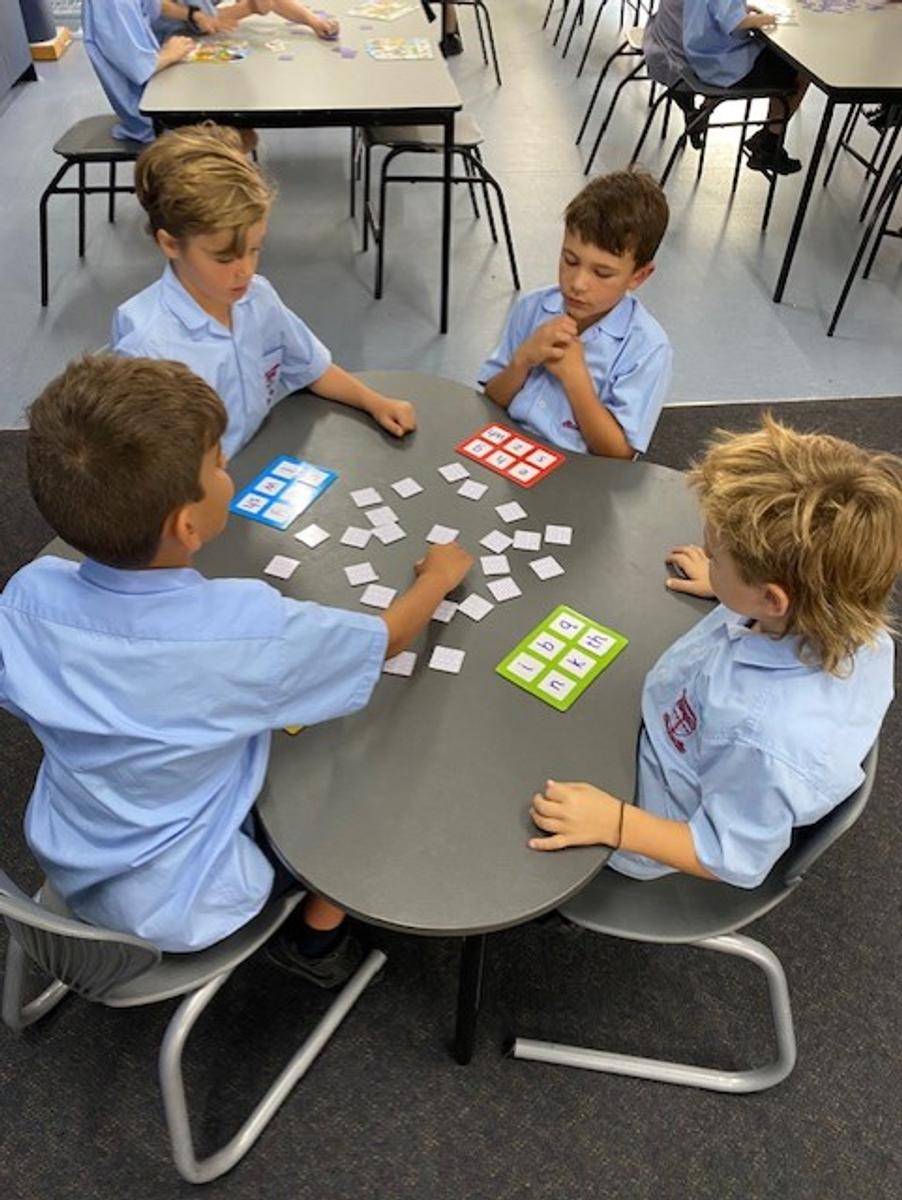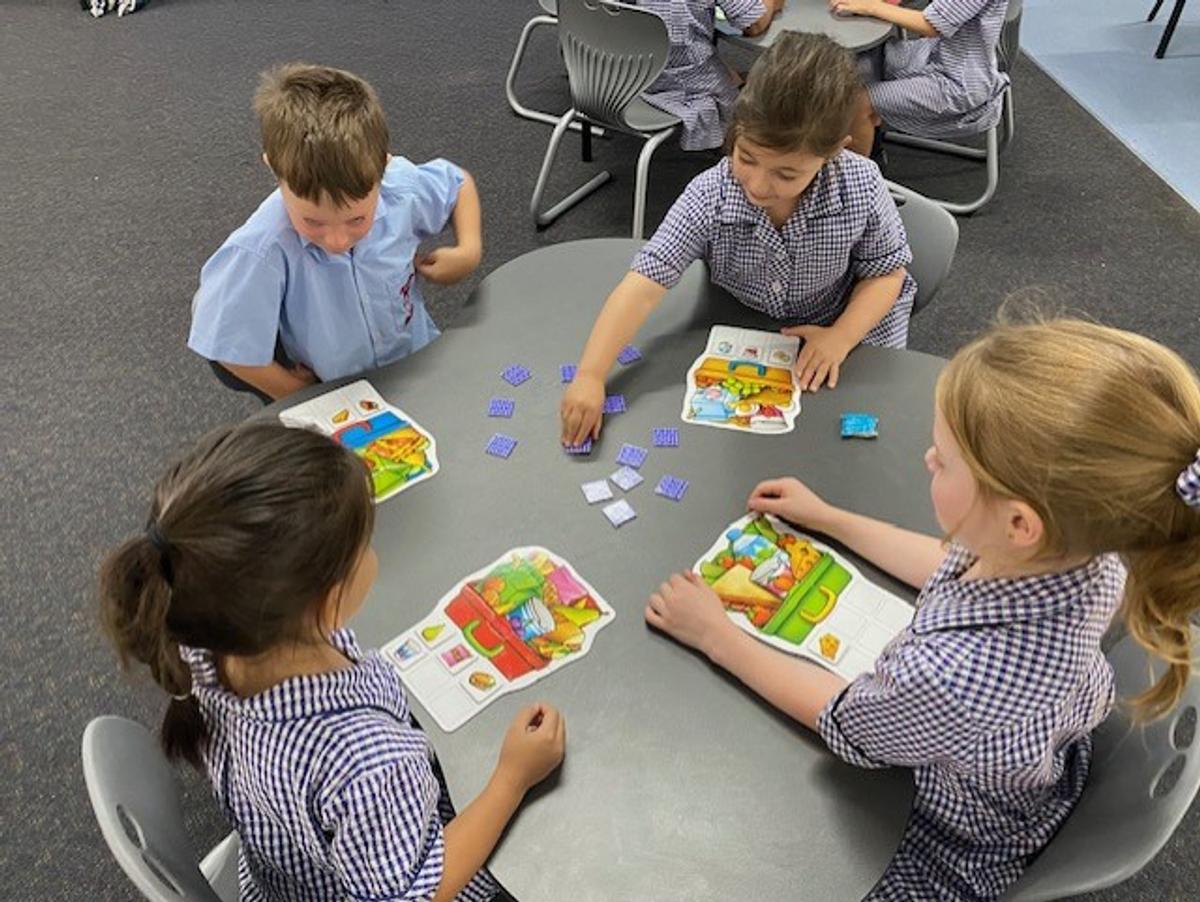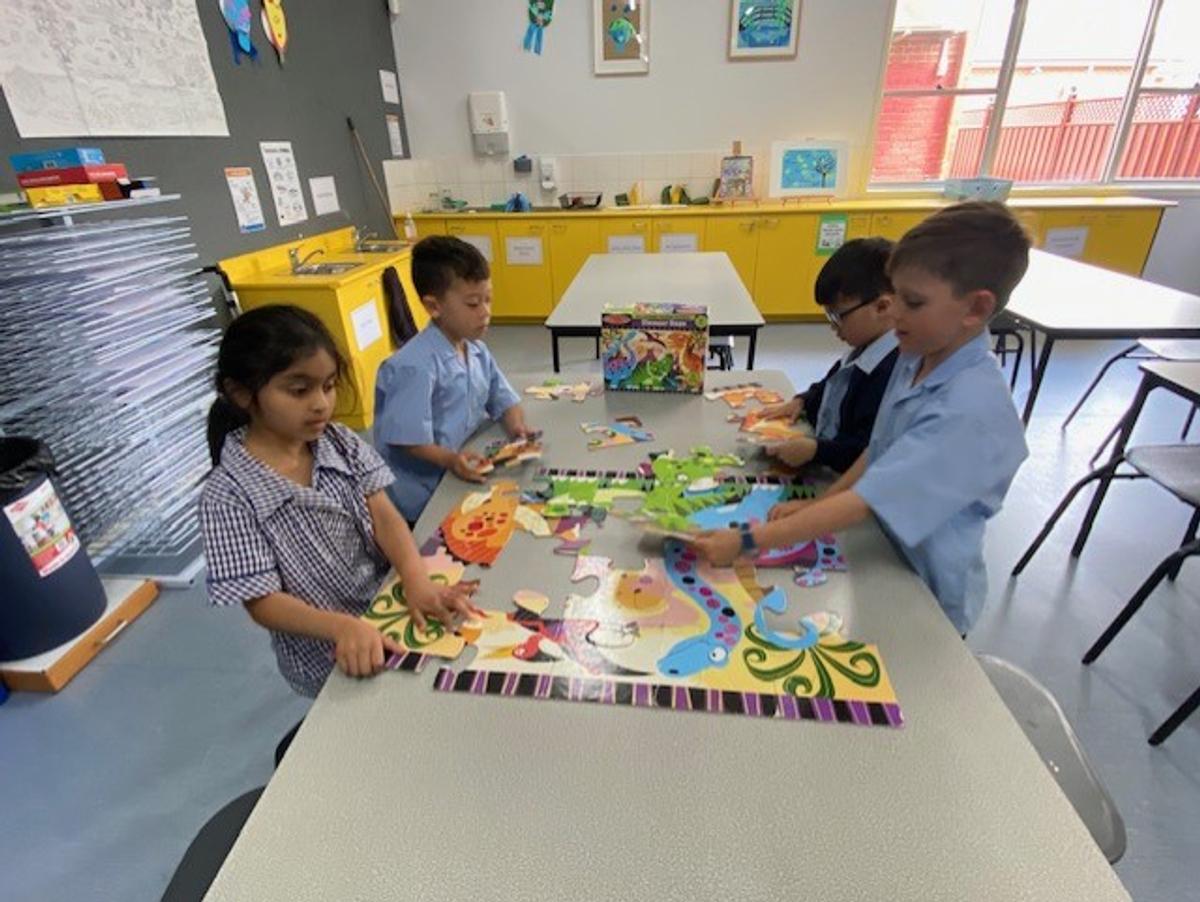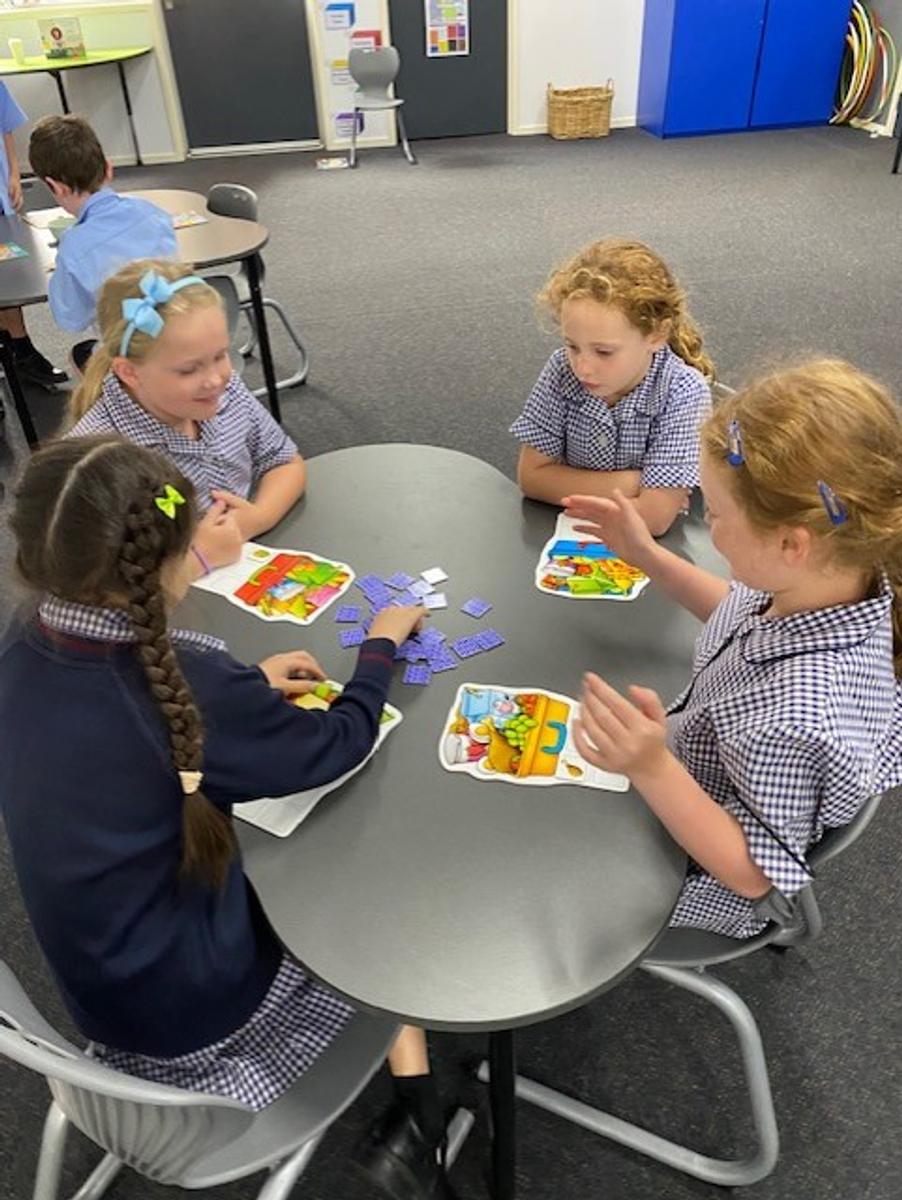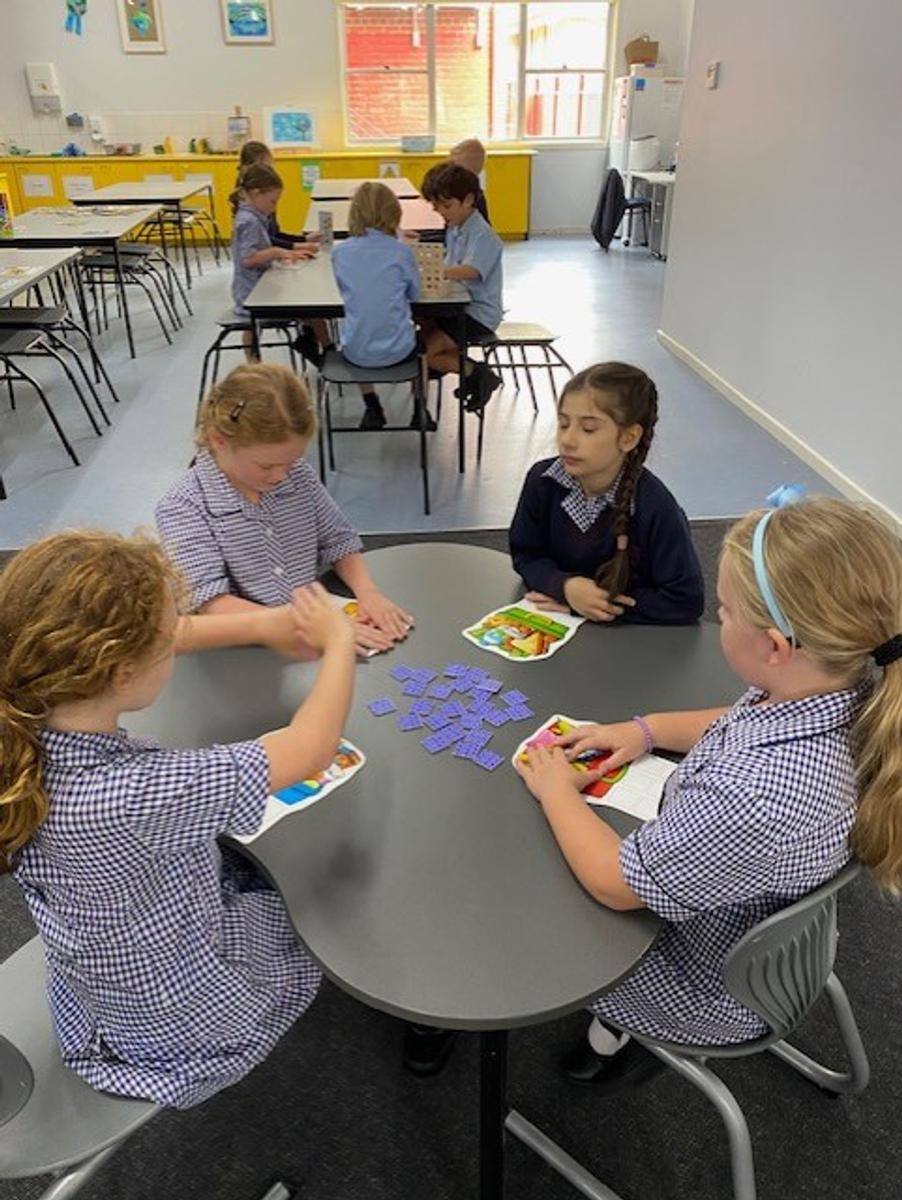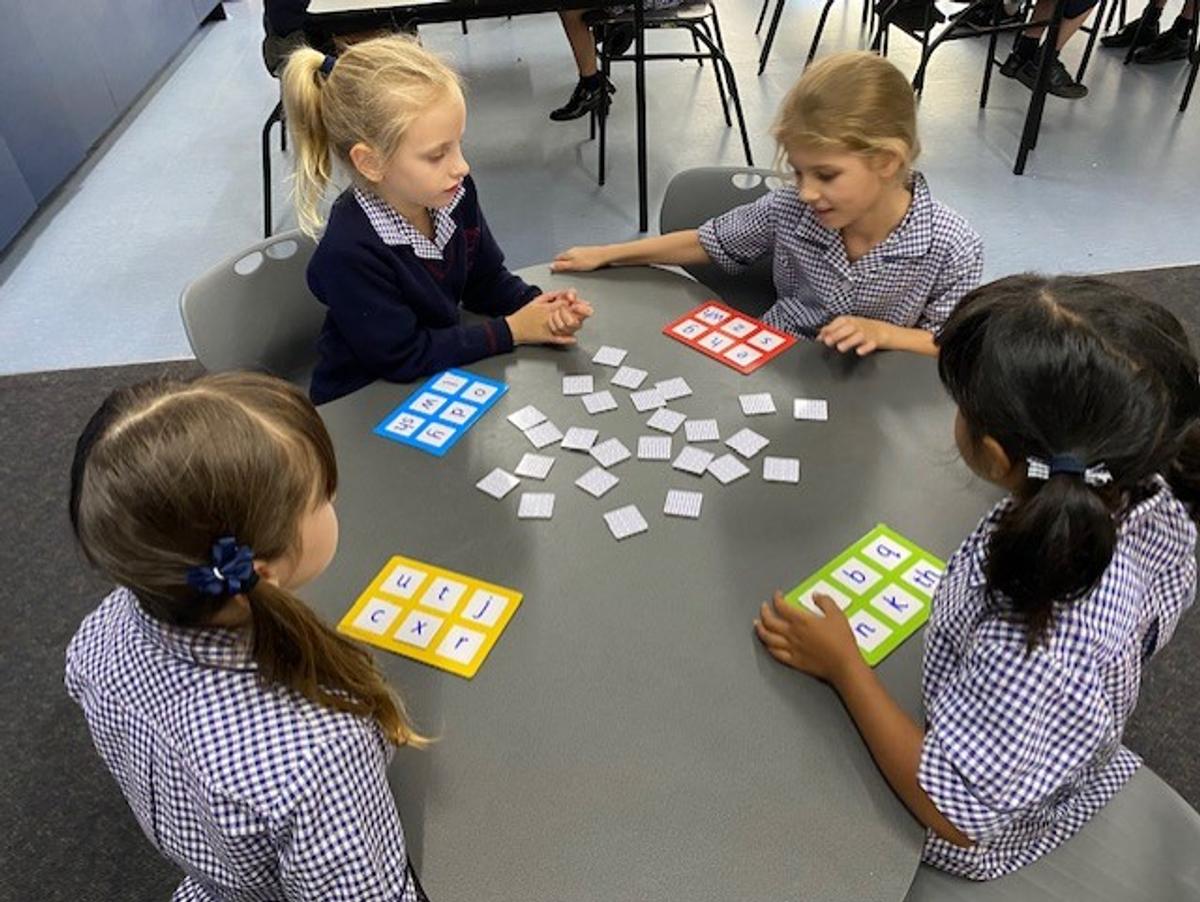Junior School Reflections

SOCIAL EMOTIONAL LEARNING (Prep to Year 2)
Connection, Collaboration & Communication GAMES [Week 1 & 2]
Whilst the children often know each other, after a long break, it is important to re-visit “how” we engage with friends during play.
After observing a number of the junior children playing outside in the first week, listening to conversations, tones of voice, and checking in around “rules of a game”, I felt it was a great opportunity to set up some games and puzzles that would provide each class with the chance to discuss the idea of rules in game play and some of the other more appropriate ways to engage with each other during games.
There were a number of games set out for the children to choose from such as the Lunch Box game, Shopping Game, Alphabet Bingo, Old MacDonald game, Connect 4 and they were encouraged to complete a game prior to moving on. I also included puzzles and construction items as these are often areas of play that allow children the chance to learn to connect, collaborate and communicate.
Sometimes the small group stayed together, and at other times they connected with new playing partners.
Prior to starting our session, we discussed rules around games and play:
-Turn taking
-Sharing
-Including others in the game
-Listening to others
-Speaking kindly to each other during games – use of “encouraging” language
-Do we call someone a “cheat”? OR can we remind them of the rules of the game, ie, “we all need to take it in turns, it’s [insert name’s] turn.
-How we win (graciously) as opposed to “I won, I won, I’m the best” and lose (graciously)
-What can we say to others when they win? Congratulations; great game; well done. Let’s play another game!
We began our session by reading “Mad Magpie” which was all about understanding our own emotions and how we deal with them when we are challenged by others or find situations difficult.
At home. Set some time aside to play one game each week, whether that be a board game, snakes and ladders or UNO and encourage all the rules around games and role model the winning and losing aspect. The more they play, the better they cope with a loss, or regulate their responses to winning, as well as using appropriate language during a game.
Stacey Farrell
Wellbeing Teacher [Prep to Year 2]
Transition Coordinator

